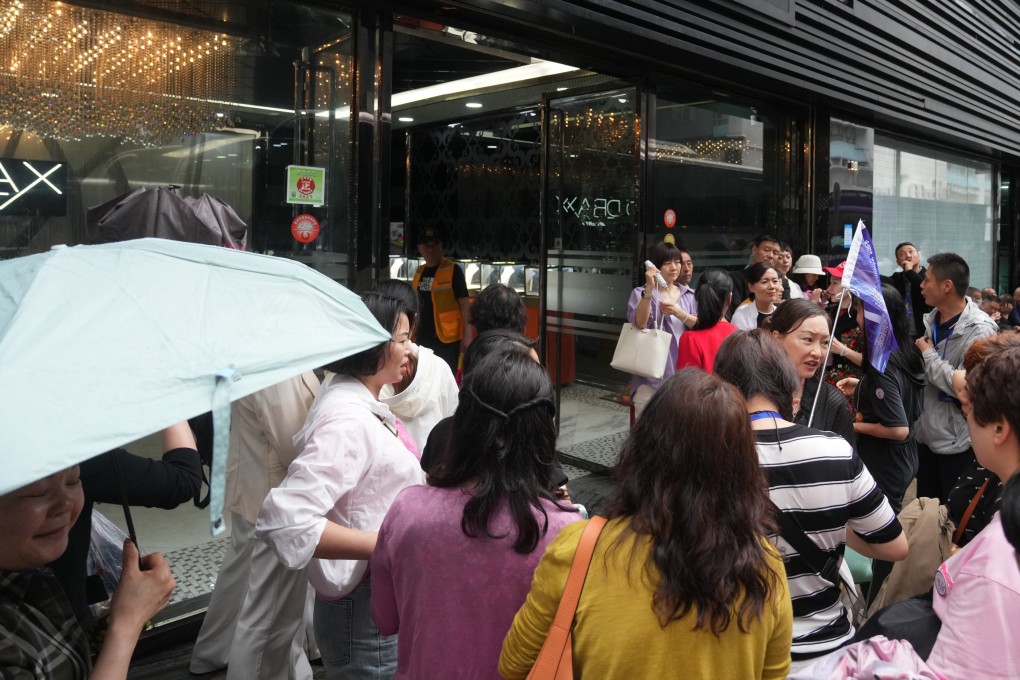Hong Kong shopping spree for 2,000-strong mainland China tour group as some locals complain about disturbance to daily life
- Coach loads of visitors arrive one after another at jewellery shop in Hung Hom after breakfast at To Kwa Wan restaurant
- It is second largest mainland tour group to visit Hong Kong since cross-border travel fully resumed in February, with Macau next on the itinerary

A 2,000-strong group of tourists from mainland China spent the second and final day of their Hong Kong visit on an arranged shopping spree and dined out in Kowloon City and To Kwa Wan, to the annoyance of some locals.
Coach loads of the visitors arrived one after another at a shop called DDrax Jewellery in Hung Hom on Wednesday afternoon. According to an itinerary seen by the Post, the shop visit followed breakfast at a nearby To Kwa Wan restaurant.
The tourists were split in groups, with each spending around two hours in the jewellery store under the itinerary, before being bused to other shopping destinations, including Tsim Sha Tsui.
Visitor Liu Mei, in her 50s, told the Post she spent around HK$10,000 in total at the jewellery store and the pharmacy next door, while her friend Han Xiaolu, also in her 50s, said she bought a bracelet for about HK$3,000.
But some locals felt their daily lives had been disturbed.
Asked whether the streets were more crowded than usual, an employee at a nearby car wash said the crowds of tourists were “definitely a nuisance”.